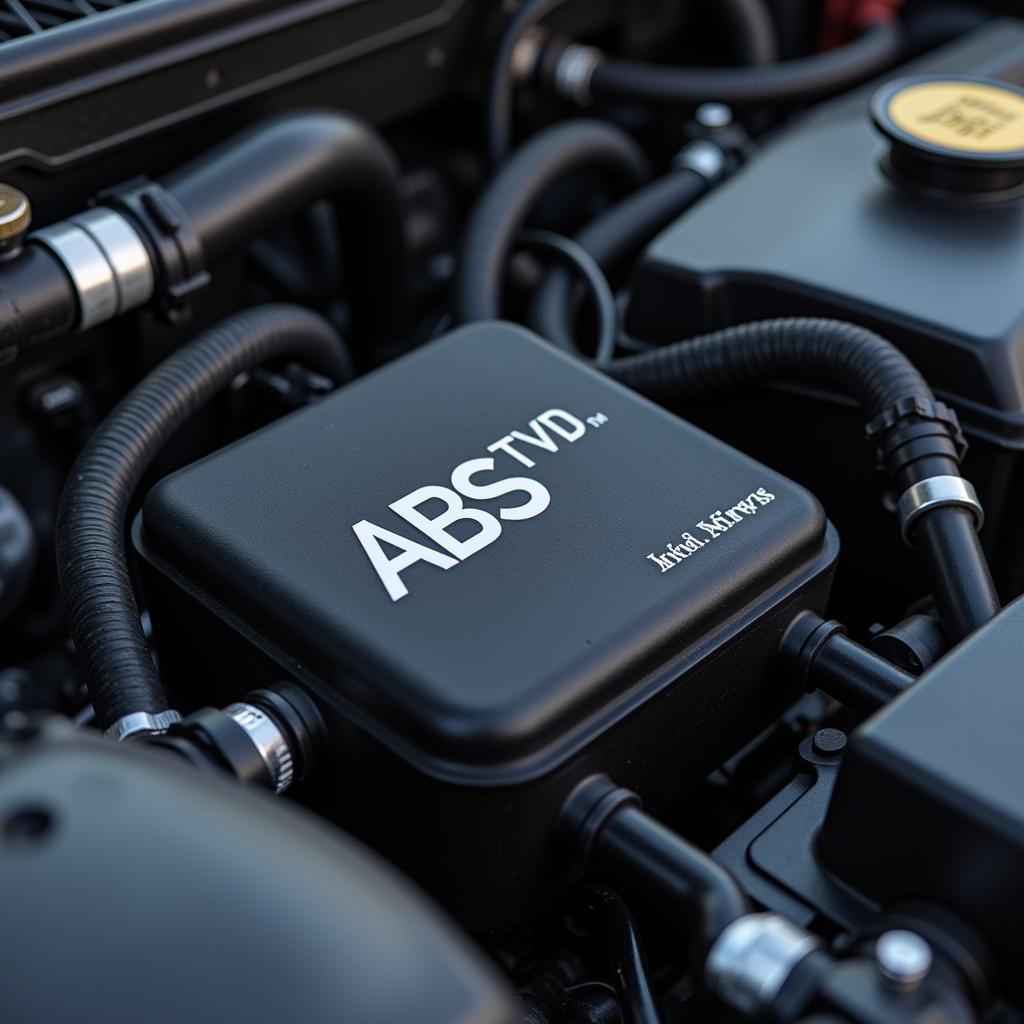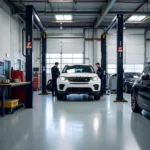A car diagnostic tool including ABS SRS is an essential tool for any mechanic or car enthusiast. It allows you to read and clear diagnostic trouble codes (DTCs) from your car’s various systems, including the engine, transmission, ABS, SRS, and more. This guide will explore the ins and outs of these tools, helping you understand their functionalities and choose the right one for your needs.
Understanding Car Diagnostic Tools: Beyond the Basics
Before diving into the specifics of ABS and SRS systems, it’s crucial to grasp the fundamental role of car diagnostic tools. These tools act as a window into your vehicle’s computer system, allowing you to:
- Retrieve Diagnostic Trouble Codes (DTCs): These codes are like your car’s way of telling you something is wrong.
- Read Live Data: Access real-time information from various sensors, providing insights into your car’s performance.
- Run System Tests: Activate specific components, like solenoids or actuators, to pinpoint issues.
- Reset Systems: After repairs, these tools can reset warning lights and ensure systems are functioning correctly.
Deciphering ABS and SRS: Why They Matter
Anti-lock Braking System (ABS)
 Modern Car with ABS System
Modern Car with ABS System
The ABS system is critical for safety. It prevents your wheels from locking up during hard braking, allowing you to maintain steering control and avoid skidding. A car diagnostic tool including ABS functionality can:
- Read ABS-specific DTCs: Identify issues with wheel speed sensors, hydraulic units, or control modules.
- View Live Data: Monitor wheel speed sensor readings, brake fluid pressure, and ABS module activity.
- Perform ABS System Tests: Initiate tests to check the functionality of ABS components.
Supplemental Restraint System (SRS)
The SRS goes beyond just airbags. It encompasses seatbelts, pretensioners, impact sensors, and the airbag control module. A car diagnostic tool including SRS capabilities can:
- Read SRS-specific DTCs: Detect faults in airbag sensors, seatbelt pretensioners, or the airbag control module.
- Clear SRS Fault Codes: After addressing an issue, you can use the tool to reset the SRS warning light.
- (Important Note): Working with SRS systems can be dangerous. Always refer to a professional mechanic for complex SRS-related issues.
Choosing the Right Car Diagnostic Tool: Factors to Consider
Selecting the appropriate car diagnostic tool including ABS SRS can feel overwhelming. Here are some key factors to guide you:
- Vehicle Compatibility: Ensure the tool supports the make, model, and year of your vehicle.
- Functionality: Determine the specific features you need, whether it’s basic code reading or advanced bi-directional control.
- User Interface: Opt for a tool with an intuitive interface, clear menus, and easy-to-understand data display.
- Budget: Prices can vary greatly. Consider your budget and balance features with affordability.
Top Car Diagnostic Tool Recommendations:
For those seeking high-quality options, consider these popular choices available on DiagFixPro:
- Topdon ArtiDiag800BT Car Diagnostic Tool: This tool offers advanced features and broad vehicle coverage, making it suitable for both enthusiasts and professionals.
- Autel Diaglink OBD2 Car Code Reader All Systems Diagnostic Tool: Autel is a reputable brand known for its reliable and feature-rich diagnostic tools.
The Value of Regular Diagnostic Scans:
“Regularly scanning your car, even when there are no apparent issues, is like giving your vehicle a health check-up,” says automotive expert John Smith, lead mechanic at ABC Auto. “It allows you to catch potential problems early on, saving you time, money, and potential headaches down the road.”
Investing in a car diagnostic tool including ABS SRS empowers you to take control of your vehicle’s maintenance, troubleshoot issues effectively, and ensure optimal performance and safety.
Conclusion
A car diagnostic tool including ABS SRS is an investment in your vehicle’s health and your peace of mind. By understanding the capabilities of these tools and considering your specific needs, you can choose the right one to unlock a wealth of information about your car’s inner workings.
Frequently Asked Questions (FAQs)
1. Can I use a car diagnostic tool on any vehicle?
Car diagnostic tools are designed to work with specific makes and models. It’s crucial to choose a tool that supports your vehicle.
2. Is it safe to use a car diagnostic tool myself?
While basic code reading and clearing are generally safe, more advanced functions should be performed by qualified mechanics.
3. What is the OBD-II port?
The OBD-II port is a standardized connector found in most vehicles manufactured after 1996. It allows diagnostic tools to communicate with the car’s computer system.
4. What should I do if a warning light stays on after clearing codes?
If a warning light persists after clearing codes, it indicates a potential problem that needs further investigation.
5. Where can I find reliable car diagnostic tools?
DiagFixPro offers a wide range of high-quality car OBD diagnostic tools to meet your needs.
6. How much do car diagnostic tools cost?
The price of car diagnostic tools varies depending on features and brand. You can find best car diagnostics for the money at DiagFixPro.
7. Are there car diagnostic tools specifically designed for UK vehicles?
Yes, there are Fixd car diagnostic UK tools available that are compatible with vehicles sold in the UK market.
Need More Help?
For any further assistance or inquiries, reach out to our dedicated customer support team via WhatsApp at +1(641)206-8880 or email us at [email protected]. We’re available 24/7 to help you with your car diagnostic needs.

